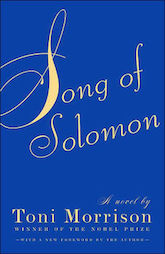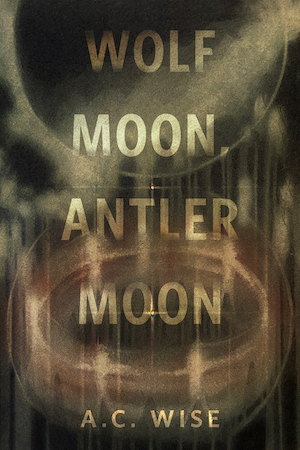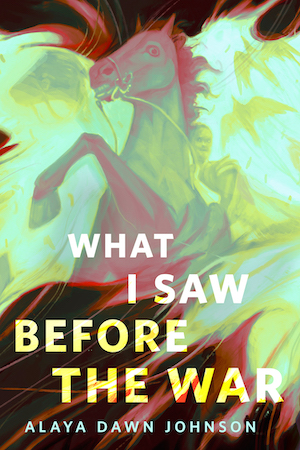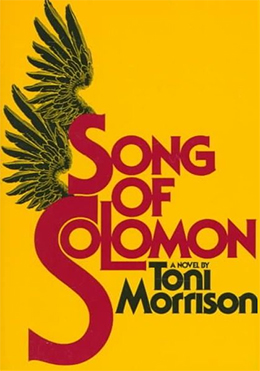In 2016, Fantastic Stories of the Imagination published my survey “A Crash Course in the History of Black Science Fiction” (now hosted here). Since then Tor.com has published 26 in-depth essays I wrote about some of the 42 works mentioned, and another essay by LaShawn Wanak on my collection Filter House. This month we’ll consider the grit and delicacy of Song of Solomon by Toni Morrison.
OBSCURITY IN FAME
In October 1996, Song of Solomon was the Oprah Winfrey Book Club’s second selection. Reading its description on the club’s website, you’d never take it for anything other than a work of mainstream, mimetic fiction. It’s about conflict, relationships, and “the mysterious primal essence of family.”
None of which rules out speculative fiction. But of the 79 other titles picked by the Book Club so far, representatives of the fantastic imagination at work are few and far between. By my count, there are only six total, and that’s one more than Jeff Somers listed on his 2016 Barnes and Noble blog post on the topic, “The Secret Science Fiction & Fantasy on Oprah’s Book Club List.” Plus, all six of these representatives come from outside the SFFH community. Let’s not let them languish in the obscurity of a readership consisting of a mere two million members. Let’s include them as classics of our own genre—or at least, let’s include this one.
STEEL LACE
Set in my home state of Michigan, Song of Solomon’s opening scene depicts details of the perversity of African-descended people’s survival in 20th century North America, post-slavery, mid-oppression, pre-Millennium: Spilled red velvet rose petals and a rough-clad woman singing the blues people snowy Not Doctor Street, and a stubborn, unsuccessful birdman with silk wings hovers over the entrance to No Mercy Hospital, where the novel’s protagonist, Macon Dead III is born.
As the story progresses from this promisingly vivid start, it becomes more and more obvious that everything in its world is fantastic. Everyone’s at odds with convention—even characters like Dead’s mother and father, who think themselves solidly aligned with it. They all make their own original ways into and out of supposed normalcy, and they do so from the book’s first pages through to its end. Strength can be conjured from weakness and weakness from strength, as when Macon’s Aunt Pilate shrinks herself a foot shorter so she won’t be labeled a threat by the police when she goes to the station to bail him out. And as when Dead (aka Milkman) winds up in a knife-and-broken-bottle fight because his three-piece suit’s too sharp and his spending’s too free.
Like the intricate weave of the supporting cables of a suspension bridge, this novel’s plot threads tug into place a story taking readers from one point to a similar yet distant other. From the doomed flight of the silk-winged insurance salesman on the day of Milkman’s birth to his own heroic leap onto the wind’s back, we traverse the ad hoc mundanities and new-minted traditions of black lives improvising themselves into existence. Such familiar surroundings for anyone who has lived in an Afrodiasporic community… Out of these inventions and muddled, half-remembered dreams we spin our webs of culture.
REAL MAGIC
Studies of epigenetics reveal that the effects of previous generations’ experiences linger longer than we once believed—long past the end of any given individual’s life. Humans subjected to the traumas of enslavement have bequeathed to their descendants odd sensitivities, unreasoning fears, and surprising adaptations. I don’t wear chains—not even as jewelry. My mother refused to let me go outdoors barefoot as a child. Meeting my elders’ eyes was seen as an act of insolence. Hair from my neatly combed head had to be burnt or flushed before the birds took it to build nests, driving me mad.
Buy the Book


Song of Solomon
Morrison presents these sorts of eccentricities matter-of-factly. They’re not “exotic.” It’s only that just as custom dictates certain things, certain things dictate custom. Guests leave the meat from a pot of greens—for their hosts. People tired of slavery fly back home to the legendary African kingdom of Guinea.
More than half of Song of Solomon deals with the question of what happens to those who’ve been abandoned here. Us. How can anyone just disappear, just sever their connections to land and family and flee, asks the ghost of the original Dead. We children born of the survivors of the Atlantic slave trade must ask ourselves that same question. The only possible response is not an answer but a vow to remember those who’ve lost us. To keep that cut connection alive.
Milkman/Macon Dead is the third of his name, which may not seem like much of a legacy to some. But his is a lineage that’s ancient compared to the abortive ties and stubs that are all most African-descended people know of their pasts. He journeys South, following the vapor trail of his vanished grandfather.
SOLID AIR
In Virginia, Dead finds the cave where his ancestor’s stolen treasure supposedly is hidden. He hears children chanting a song based on his family’s secret history. He comes upon the last servant of his grandfather’s killers kissing dogs among the ruins of their ill-gotten gains. He confronts his own would-be killer and leaps the gap separating the two of them, landing on the wind’s broad back. Stories are air. Words are breath. Morrison’s ephemeral truths would evaporate if we didn’t cherish them. So do.
Magic exists. We’re the proof.
 Nisi Shawl is a writer of science fiction and fantasy short stories and a journalist. She is the author of Everfair (Tor Books) and co-author (with Cynthia Ward) of Writing the Other: Bridging Cultural Differences for Successful Fiction, and the editor of the anthology New Suns: Original Speculative Fiction by People of Color. Her short stories have appeared in Asimov’s SF Magazine, Strange Horizons, and numerous other magazines and anthologies.
Nisi Shawl is a writer of science fiction and fantasy short stories and a journalist. She is the author of Everfair (Tor Books) and co-author (with Cynthia Ward) of Writing the Other: Bridging Cultural Differences for Successful Fiction, and the editor of the anthology New Suns: Original Speculative Fiction by People of Color. Her short stories have appeared in Asimov’s SF Magazine, Strange Horizons, and numerous other magazines and anthologies.










